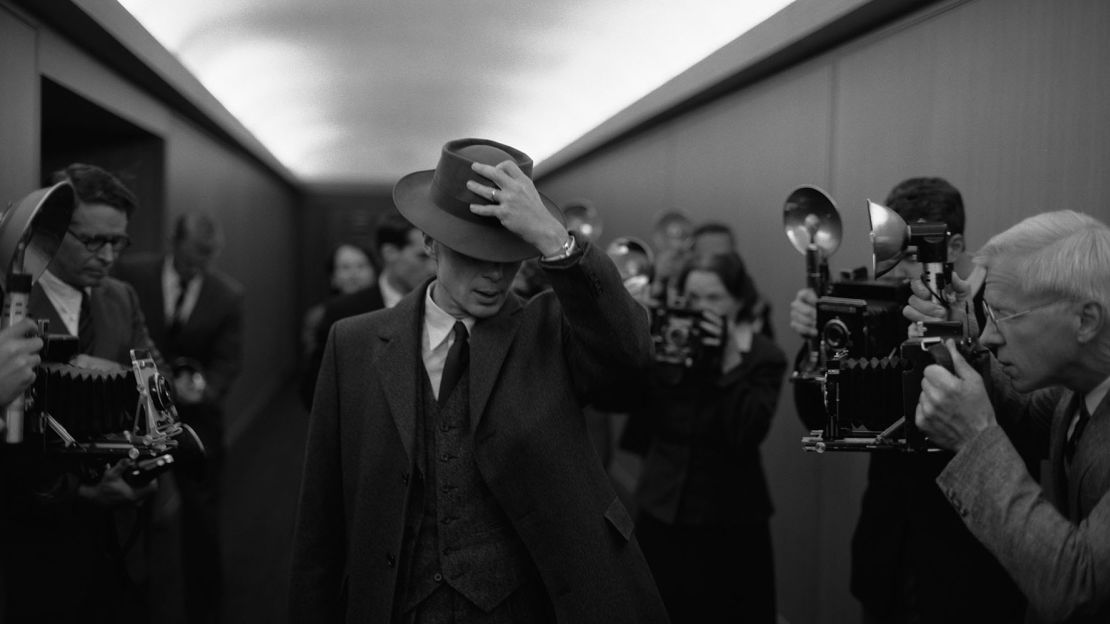“Barbie” and “Oppenheimer” wouldn’t appear to have much in common, despite the Internet joke that turned them into an unlikely double feature. Yet the two films share one attribute that’s often assumed to be verboten during the sequel-heavy blockbuster season associated with summer: They both ask audiences to think.
Thinking might not seem like a unique demand, but one needn’t really do a whole lot of it to sit back and enjoy the sensory overload of “Fast X” or the latest “Transformers” prequel. Indeed, checking your brain at the door has become practically synonymous with summer moviegoing, before the fall brings the customary rush of festivals and awards-hunting prestige fare.
Obviously, the wonder twins known as “Barbenheimer” (conjoined by their shared release date) approach the notion of asking audiences to think in different way, and to varying degrees.
Director Christopher Nolan’s three-hour epic “Oppenheimer” pivots on questions of morality, and unleashing a weapon upon the world that gave humankind the means of destroying itself in a headlong race against the Nazis during World War II. That we are still worrying about the nuclear threat nearly 80 years later, during another war, puts a provocative bow on Manhattan Project organizer J. Robert Oppenheimer’s belief (or perhaps more accurately, hope) that the mere existence of the atomic bomb would render war “unthinkable.”
“Oppenheimer’s” sobering, even depressing streak was baked into the concept, and reflects Nolan’s audacity when it comes to challenging audiences, whether that’s mind-bending concepts such as “Inception” or (far less successfully) “Tenet,” or the issues of vigilantism and a surveillance state woven into “The Dark Knight.” Just releasing the film during the summer made a statement, reflecting the director and studio Universal’s belief that a “serious” movie wouldn’t wilt in the July heat.
“Barbie” also leaned into the thinking-person’s-summer-movie formula, turning the “How do we build a film around a doll?” question into a treatise on how Barbie, with her impossible physique and colorful accessories, fits into the 21st century. That includes a brush with “the real world,” and a rude awakening about the patriarchy that exists there, where women are ogled and don’t hold every seat on the Supreme Court.

Inevitably, Barbie’s embrace of feminism and inclusiveness (including a trans character) has triggered a “Barbie” backlash from the expected sources who feast on cultural outrage, although the film’s bountiful box-office haul – raking in more than $160 million in North America for its opening weekend, the year’s biggest – doesn’t do much to support the “Go woke, go broke” contention.
Oscar-nominated director Greta Gerwig (who shares the writing credit on “Barbie” with Noah Baumbach) clearly invited that conversation, wanting to do more than simply be colorful and frothy. If it’s not nuclear annihilation, the movie goes beyond all that pink to prod women to contemplate what images of beauty and role models they were fed growing up and how to process them now.
It probably needs to be said that the success of these two movies – with “Oppenheimer” also vastly exceeding the most optimistic box-office expectations despite its length – and the relative failure of several sequels this summer isn’t necessarily a referendum on quality. People showed up because they were intrigued or saw them as genuine events, and apparently didn’t view the latest DC superhero “The Flash” or the fifth “Indiana Jones” as must-see adventures.
It’s likely that the fact that moviegoers didn’t know exactly what to expect – one of the blessings of an original, or at least new, concept – helped spur curiosity, and each in their own way, “Barbie” and “Oppenheimer” rewarded that by prompting audiences to think about issues outside the theater.
How Hollywood can best replicate that magic isn’t entirely clear (organic marketing campaigns seldom are), which won’t stop the inevitable Monday-morning quarterbacking about why these films delivered after others failed to launch. This victory also comes as twin strikes by actors and writers have brought their industry to a screeching halt, which might mute any celebrations.
As existential crises go, studios and movie theaters will approach that analysis as if their lives – or more accurately, the future of their business – depended on it. In that, too, “Barbenheimer” has given us more to think about, and how they turned all that pink and black-and-white into a wave of green.
“Barbie” is distributed by Warner Bros., like CNN, a unit of Warner Bros. Discovery.




